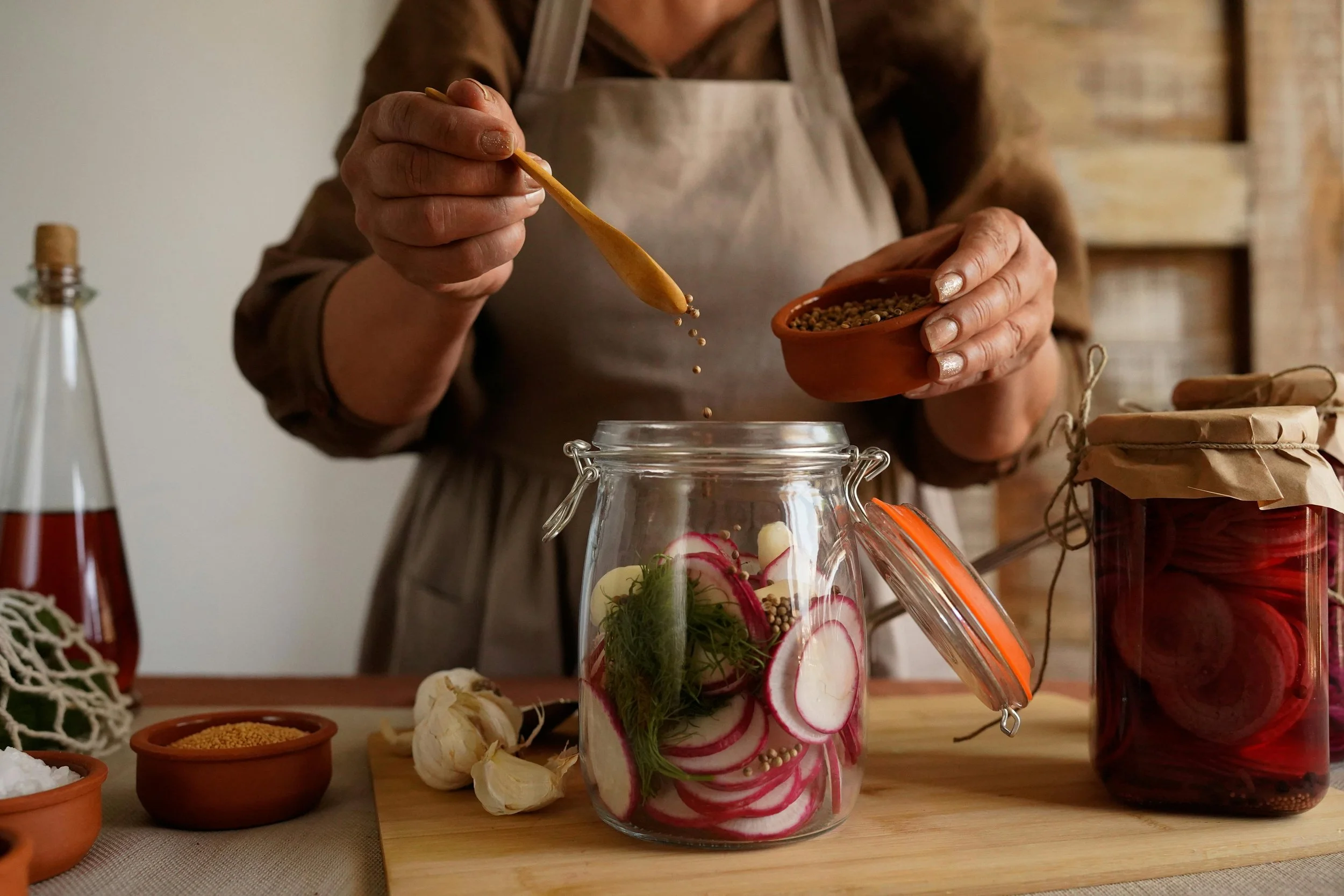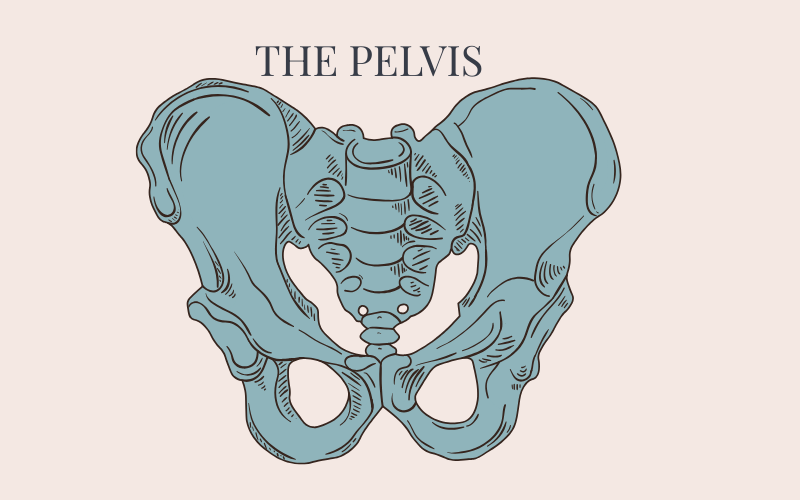
Melatonin for Postnatal Sleep: Benefits, Limits, and Safer Ways to Boost Your Own Production
Postnatal sleep can feel like a puzzle that’s constantly missing a few pieces. Between night feeds, hormonal changes, and the emotional load of caring for a newborn, many mothers look for safe and natural ways to support better rest. One of the most commonly searched tools is melatonin—a hormone deeply connected to sleep.
But what’s actually known about melatonin for postpartum women? Does it appear in breastmilk? Can it influence your baby’s sleep? And what are safe, evidence-based ways to support your own melatonin production without relying on supplements?

Why the Vagus Nerve Matters in Pregnancy — and How to Support It
Most of us think of pregnancy in terms of hormones, scans and growing bellies — but there’s another biological system quietly shaping how your body adapts, responds to stress, and even how you feel emotionally: the vagus nerve.
The vagus nerve — also called cranial nerve X — is the longest and one of the most important parts of the parasympathetic nervous system. It acts as a major communication highway between your brain and your organs, including the heart, lungs, and digestive system. It helps regulate involuntary functions such as heart rate, breathing, digestion, inflammation, and immune responses.

The Science of Self-Care in Pregnancy, Postpartum & Motherhood: Why It Matters for Both Mother and Baby
Pregnancy, the postpartum period and early motherhood are often described in emotional terms — joyful, overwhelming, transformative — yet they are also some of the most physiologically demanding stages of life. Behind the scenes, a mother’s body is navigating profound hormonal shifts, nervous system changes, tissue healing, disrupted sleep and an increased cognitive and emotional load.
In this context, self-care is not indulgent. It is biologically necessary. Increasingly, research shows that when women are supported to regulate stress, rest and recover — alongside receiving appropriate medical care — outcomes improve not only for mothers, but for babies and families too.

The Gut-Brain Axis: Why Your Microbiome Might Be Driving More Than Just Digestion
You’ve likely heard the phrase "gut feeling"—but what if we told you your gut was literally talking to your brain? That’s not just poetic, it’s biological. Welcome to the world of the gut-brain axis—an intricate, two-way communication system between your gut microbiome and central nervous system.
This connection influences far more than digestion. It has a proven role in regulating your mood, cognition, immune function, energy levels, hormonal signalling, and even reproductive health. During times of immense physiological change—like pre-conception, pregnancy, postpartum, and hormonal transitions—this axis becomes even mor

Instruments Used in Birth: What They Do, When They’re Used, and Why Understanding Them Matters
Instrumental birth is one of the most poorly understood aspects of modern maternity care. For many parents, forceps or ventouse are only introduced at the point they are recommended — often during an intense, time-pressured moment.
Yet these tools have clear clinical indications, specific mechanical functions, and predictable implications for birth experience and recovery. Understanding them antenatally allows parents to engage with decisions from a place of knowledge rather than fear.

Preparing for a Winter Pregnancy: Nutrition, Body Care & Wellbeing Tips
Winter brings cosy evenings, festive routines, and plenty of nourishing food — but it can also pose unique challenges for pregnant women. Colder temperatures, fewer daylight hours, an increase in seasonal viruses, and drier indoor heating can all impact your comfort, immunity, and overall wellbeing during pregnancy.
This guide brings together nutrition, body care, and wellbeing practices to help you feel supported, energised, and protected throughout the winter months.

Understanding hCG and Progesterone: Your First Pregnancy Hormones
When you first become pregnant, your body undergoes a remarkable hormonal transformation — a delicate, finely tuned process that sustains early pregnancy and supports the development of new life. Two key hormones take the lead in these first crucial weeks: human chorionic gonadotropin (hCG) and progesterone. Understanding their roles helps explain everything from positive pregnancy tests to the early pregnancy symptoms many women experience.

The Truth About Private Pregnancy Scans: What the Latest BBC Report Means for You
A recent BBC News investigation has put private pregnancy scan clinics under the spotlight, revealing serious concerns about unregulated providers giving false reassurance and missing critical issues in pregnancy.

Water Birth: A Complete Guide to Birth Pools
For many parents, the idea of labouring or giving birth in water feels instinctive — calm, private, and deeply soothing. But what are the real benefits? Are there risks? And how can you set up a birth pool safely at home?

What Is an Epidural? A Complete Guide for Expectant Parents
When it comes to labour pain relief, epidurals are one of the most talked-about — and misunderstood — options. Many expectant parents aren’t sure how they work, what to expect, or how they might affect birth.

Why Your Hips, Back, and Posture Feel Different After Having a Baby
You carried life. You grew and birthed an entire human being. So it’s no surprise that your body — especially your hips, back, and posture — feels different after having a baby. But while many mums brush this off as “just part of motherhood,” the truth is that these changes often have a clear physical cause… and support is available to help you feel strong and comfortable again.

The Four Phases of Your Cycle and How They Affect Conception
Understanding your menstrual cycle is one of the most powerful tools in fertility awareness. Many women are unaware of the intricate hormonal and physiological changes that occur each month, yet these changes play a crucial role in conception. This guide will break down the four phases of your cycle, explain the science behind them, and offer practical insights for women trying to conceive.

How the Brain Remembers Birth: The Science of Emotion, Memory, and Meaning
Birth is more than a physical process — it’s a profound neurological and emotional event.
Every birth, no matter how it unfolds, leaves an imprint.
Some parents recall moments of strength, euphoria, or deep connection; others remember fear, confusion, or intensity. Many hold both.

Why Oestrogen Crashes After Birth (and How to Support the Rebuild)
After birth, your body undergoes one of the most dramatic hormonal shifts it will ever experience. In the space of a few days, levels of oestrogen — which were sky-high throughout pregnancy — plummet to almost pre-pregnancy levels.

When Plans Change: Staying Grounded Through Unexpected Birth Decisions
No two births unfold the same way — and sometimes, even with the best preparation, things change. Labour can take an unexpected turn, a care plan may shift, or interventions might be recommended faster than you imagined.

Understanding Different Nipple Types and Their Impact on Breastfeeding
When it comes to breastfeeding, no two nipples are exactly alike—and that’s completely normal. Just like our fingerprints, nipples vary in size, shape, and elasticity. While most parents will be able to breastfeed without difficulty regardless of nipple type, understanding your own anatomy can help you feel more confident, troubleshoot early challenges, and find positions and techniques that support an effective latch.

Vitamin B12 in Pregnancy and Postpartum: Why It Matters More Than You Think
When it comes to pregnancy nutrition, iron, folate, and vitamin D often take the spotlight — but there’s another nutrient that deserves just as much attention: vitamin B12.
This powerhouse vitamin supports everything from your baby’s brain development to your own energy, mood, and recovery. Here’s what every parent should know.

Birthing the Placenta: What to Expect and What You Need to Know
When we talk about labour and birth, most people’s minds jump to the moment the baby arrives. But labour isn’t truly complete until the placenta has been birthed. This third stage of labour is just as important as the first two—and understanding your choices, what might happen, and how it’s managed can help you feel calmer and more prepared.

The Pelvis in Pregnancy and Labour: Structure, Function and Adaptation
The human pelvis plays a central role in pregnancy and labour. It forms the bony passage through which a baby is born, while also adapting throughout pregnancy to support the growing uterus. Understanding the anatomy and function of the pelvis can empower women and birthing people to approach labour with greater knowledge, confidence and trust in their bodies.

Pressure Points of Calm: Reflexology’s Role in Pregnancy
Pregnancy is a time of profound change — not only physically, but emotionally and mentally. Many expectant mothers explore complementary therapies to ease discomfort, reduce stress, and prepare for birth. Among these, reflexology has gained particular interest as a gentle, non-invasive option. But what exactly is reflexology, and what does science say about its role in pregnancy?

